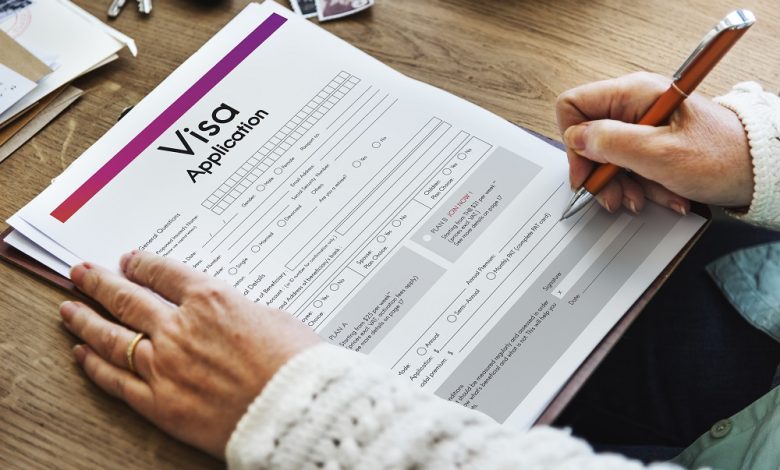How you can apply for Permanent Residence UK?

What is permanent residence?
Permanent residence means the right to remain for a long time in the EU member state regardless of whether the individual who holds the right is using Treaty rights in the form of a self-employed, worker person, self-sufficient, student, or a family member of any of these groups. (When I use the terms “EU member state” or “EU citizen” that includes Norway, Iceland, and Liechtenstein.)
The first five years of living in the same residence depend on being a worker or self-employed, etc. after this period has ended, the individual may be fired, stop economically active or cease to be the spouse or a family member of an EU citizen engaging in Treaty rights, yet remain able to reside at that EU member state.
There is no requirement to apply for permanent residence cards to gain the right to reside permanently. It is merely evidence Thus, an EU citizen who is not from the UK is automatically eligible for permanent residence after five years of being in the UK in the course of using the Treaty rights and meeting the requirements of the Citizens Directive. If an EU citizen wishes to pursue this option, they can apply for permanent residence cards to prove the existence of this right.
There is no requirement to apply for permanent residence cards in order to gain the right to reside permanently. It is merely evidence.
For practical purposes, some may choose to apply for a permanent residence card in order to show that they are a legal resident and for convenience.
There’s a second reason why someone could decide to apply for permanent residence permits for the reason that he isn’t sure if the applicant has the right documents and he/ is seeking confirmation either way.
The process of getting a permanent residence may be complex in some instances in situations where there is a gap in self-employment or employment income has been low, or the individual has to rely on what’s known as “retained right of residency” (see further below). In most instances, however, it’s simple.
How do I get permanent residence?
Permanent residence is obtain after five consecutive years of having the right to reside. The right to reside is granted to those who are engaging in Treaty rights, which entails moving to an EU country that is not your own and engaging in any of the following:
- Work
- self-employment
- self-sufficiency as well as
- Study
The family member who is an EU citizen who participates in any of these activities could be eligible for permanent residency after five years.
Absences of the UK for less than six months will not stop the person from applying for permanent residence UK. Employment gaps is allow in certain circumstances. In general, any gap of fewer than six months of employment is fine and even longer in certain circumstances. Maternity leaves up to 12 months ought to be consider as acceptable.
There are certain situations that allow citizens to enjoy the freedom of movement in the state of his/her member state by relying on the rights that are known to legal experts as Carpenter or Surinder Singh rights.
What is considered to be work, self-employment, or self-sufficiency, as well as studying and who is family members for the purpose of EU law is too large a topic to cover here, but it is addressed in my book on EU freedom of movement rights. Unemployed people can still enjoy their status as a worker under EU laws for a specific amount of time as an example and the basis for self-sufficiency could be partly derived from a family member outside of the EU.
You may also refer to the two important legal documents regarding free movement rights to yourself. The one is Directive 2004/38/EC. It is often refer to as the Citizens Directive. Another is the UK’s application of the Directive as The Immigration (European Economic Area) Regulations 2016 (SI No. 1052). In the event that the UK regulations are not able to accurately reflect or translate the Directive, the Directive has legal precedent before the judiciary (until Brexit, at least).
Making a permanent residence application
As previously mentioned, Brexit puts things in the midst of a change as well as those who are considering applying for permanent residence should be aware of the imminent replacement by “settled statutory”.
If you’re pursuing the permanent residence application You must be a resident of the UK. As a qualified individual for at least five years. Possession of a residence card or residence card isn’t sufficient by itself, as they are issue only for five years, and a person could end their qualification within a five-year period.
The same applies to applying for a long-term residency certificate or card. The requirement is evidence of living within the UK. As a qualified individual or a member of the family for a minimum of five years.
Do I need to use the official paper EEA(PR) form to apply for permanent residence?
The only applicants that have to fill out a paper form are the following:
- family members of a qualified EEA national who aren’t seeking to apply at the same time as their sponsor
- Self-sufficient or students with financial responsibility for other family members, or who rely upon a relative to provide financial assistance
- People who apply on the basis of retained rights
- applicants applying for category Surinder Singh category
Anyone else is able to apply online.
Do I need to use the version online of the EEA(PR)?
The Home Office announced that on October 1, 2016, the Home Office introduced a new version of its EEA(PR) Form. The process online has two advantages over the paper version
- Online applicants can utilize the passport. Check service to have their passport returned right in the meantime that the application is finalize.
- This version online is much simpler than the paper version. As only the questions that pertain to your specific situation are list.
The online version is not without its drawbacks. It is impossible to deny any question. Furthermore, Home Office does not state that Home Office does not state anywhere that online applications will be deem faster. Then a paper-based application. You can contact our expert immigration lawyers for more Guidance. Contact us at +44208 124 3222 and may visit our site www.immigrationsolicitors4me.co.uk





